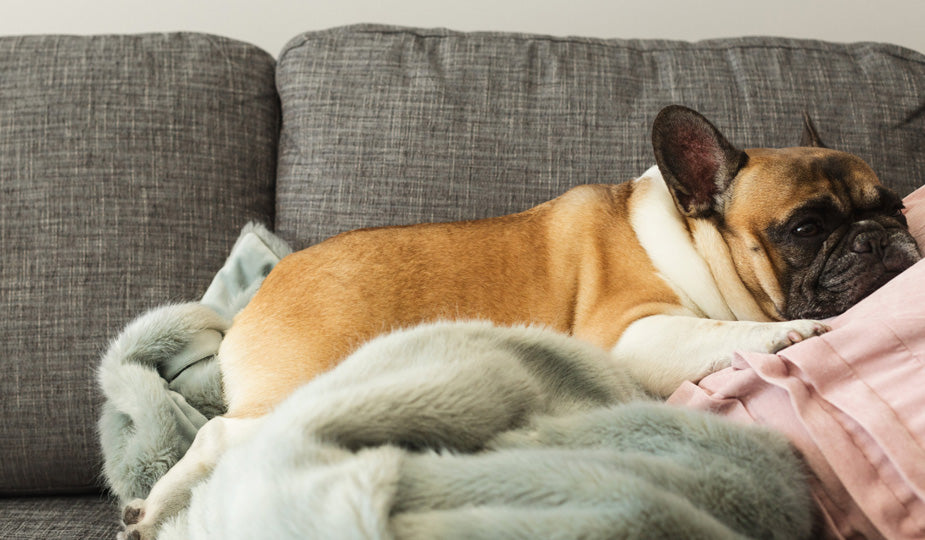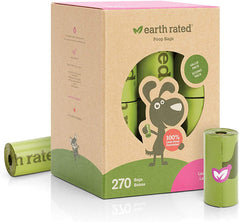Can Dogs Catch The Coronavirus?
(April 9th, 2020) Here is what we currently know. We are learning more and more about COVID-19 each day, and this deluge of information can feel overwhelming for dog owners. In addition to worrying about the health and safety of our friends and family, dog and cat lovers are concerned about the safety of their furry loved ones.
Dogs Cannot Catch The Coronavirus
The Centers for Disease Control and Prevention has stated that as of today, there is no evidence to suggest that our pet dogs and cats are a source of COVID-19. That being said, it's important to understand that coronaviruses comprise a large family of viruses that affect a range of animals including humans. Some coronaviruses cause cold-like symptoms in people, other types of coronaviruses cause illnesses in cattle, camels, and bats. And, there are specific coronaviruses that affect dogs and cats but do not infect humans and are not related to the current COVID-19 outbreak.
The United States Department of Agriculture's Veterinary Services Laboratories has confirmed one case of COVID-19 in a Malayan tiger at the Bronx Zoo. The 4 year old tiger, named Nadia, is believed to have contracted the disease from an infected zoo worker who was asymptomatic at the time. Six additional big cats are showing signs of respiratory illness but all are expected to recover. The Bronx Zoo has been closed to the public since March 16, 2020.
Cats Are Susceptible To Coronavirus
Cats, both domestic and wild, are susceptible to feline coronavirus. A study Published In The Journal Science backs this up. But according to Paul Calle, Chief Veterinarian at the Bronx Zoo, this is the first instance of a wild cat catching the disease from a human. Zookeepers and conservation groups around the country are working hard to protect the animals in their care.
Two types of coronaviruses, SARS and MERS, are zoonotic - diseases that originate in animal populations and then spread to humans. This is what scientists believe has happened with COVID-19, however, they have not yet pinpointed the source of origin. We know that the first cases of COVID-19 were linked to a market where live animals were sold, but the virus is now spreading from person to person.
Researchers from the Centers For Disease Control & Prevention provide a great resource on the Coronavirus. They have stated that there is no evidence suggesting a link between pets, livestock or wildlife and COVID-19. But it is important to practice good hygiene around animals at all times.
This includes:
- Washing your hands thoroughly after handling pets and livestock, preparing their food and cleaning up their waste and/or supplies.

Above: We are fans of Earth Rated Dog Poop Bags, available on Amazon.
- Keeping you and your pet and livestock living areas clean.
- Making sure your pets and livestock receive regular veterinary care.
While there have been no reports of pets becoming sick with COVID-19, the CDC continues to recommend that people infected with COVID-19 limit their interaction with people and pets. Other recommendations include:
- Limit your contact with pets and livestock if you are infected with COVID-19.
- Ask a family member to care for your pets until you have recovered.
- If you must care for your animals yourself while you are sick, be sure to wash your hands regularly before handling pets and their food.
- Physically separate yourself from your pets in the home as much as possible. This means creating a "sick room" away from pets and people and use a separate bathroom if possible.
- Avoid close contact with your pets including petting, snuggling and sharing food.
If you have specific questions about your health or the health of your pets and livestock, please contact your doctor and/or veterinarian.
For more ways to keep your dog safe, please read Ten Common Dog Poison Hazards: Keep Your Dog Safe. With proper precautions and smart handling of your pet's health, you can give your dog a safe, loving home.

